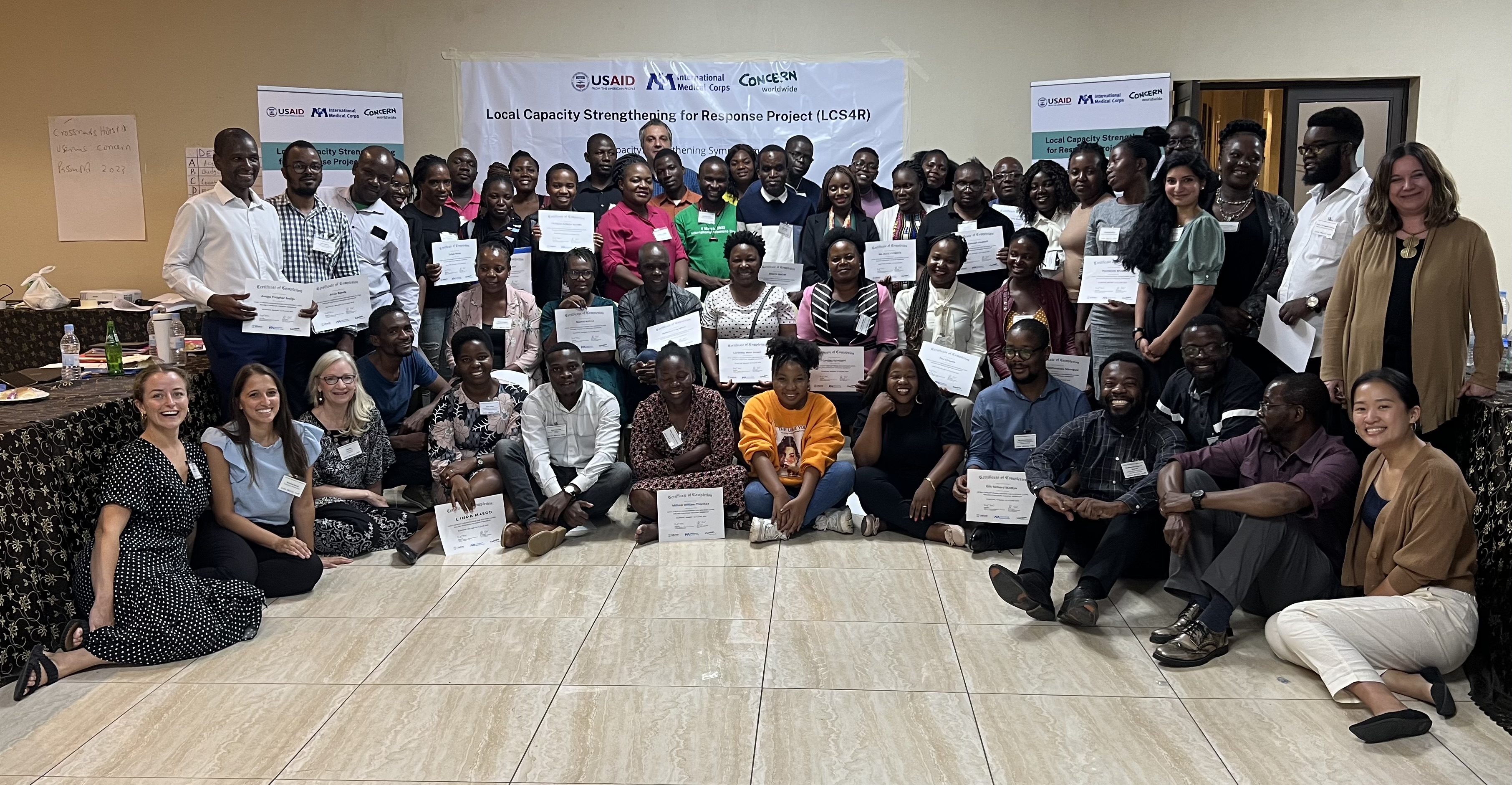As the Local Capacity Strengthening for Response Project (LCS4R) workshop in Gazipur, Bangladesh, came to an end, I heard the room fill with the excited hum of voices congratulating each other. The 40 participants from humanitarian organizations working in the cyclone-prone divisions of Khulna and Barisal had just completed an intensive 3-day workshop focusing on key issues within organizational systems related to emergency response in their communities - a new group of 47 would arrive in 2 days' time. A month earlier and 4,500+ miles away, 2 workshops with 90 participants took place in Blantyre, Malawi.
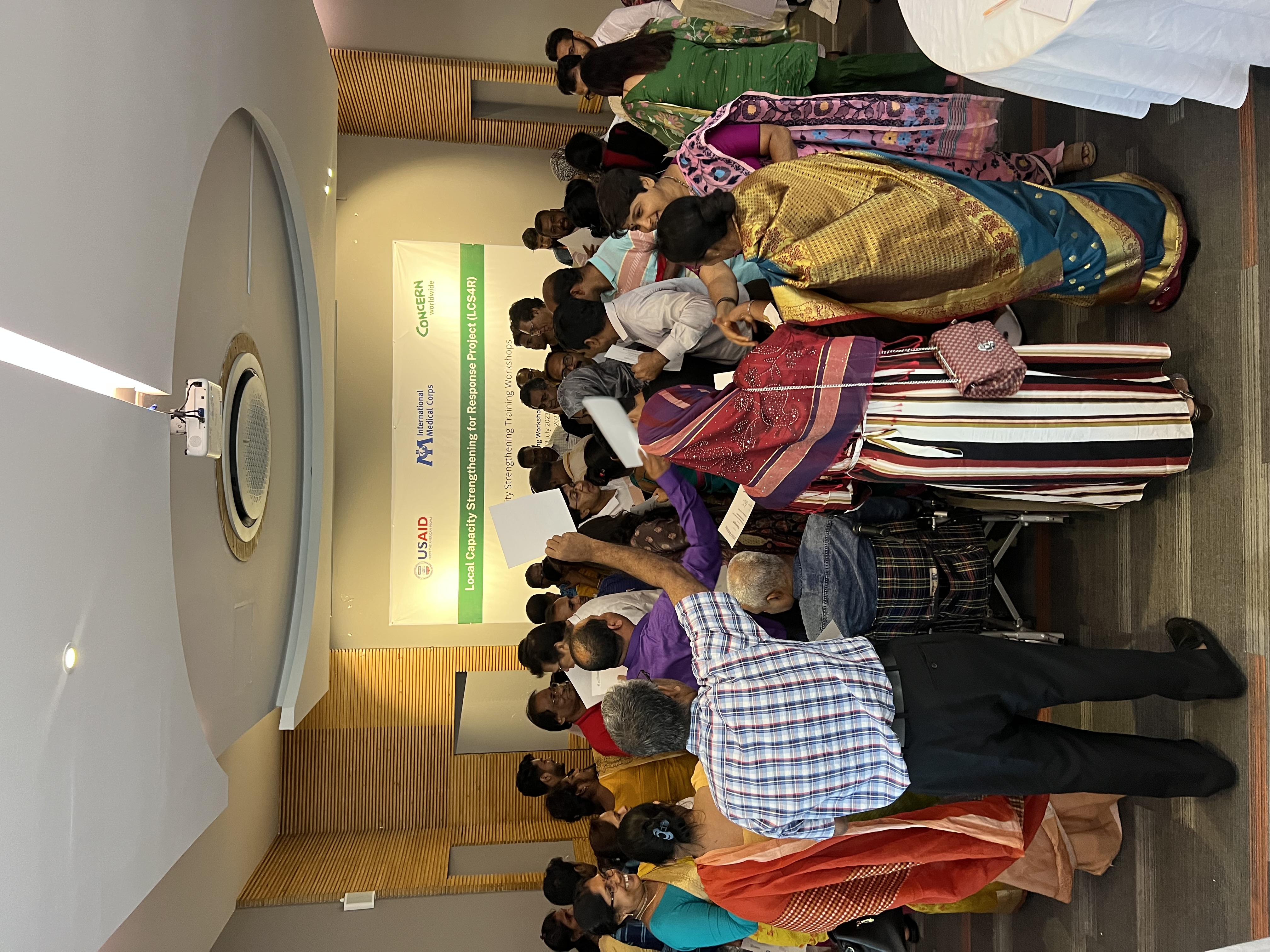
Community-based organizations (CBOs), local NGOs (LNGOs), and national NGOs (NNGOs) are at the forefront of humanitarian emergency response. They are the first to arrive with their knowledge of the local context, relationships with authorities, and are most often members of the affected communities. However, these organizations often have limited capacity to scale up or sustain their operations. They face challenges such as gaps in technical expertise, insufficient funding, or organizational systems that require development. LCS4R was initiated in 2021 to address these challenges. Funded by USAID’s Bureau for Humanitarian Assistance (BHA), the LCS4R project sees International Medical Corps (IMC) and Concern Worldwide working together to implement capacity strengthening to these organizations.
How LCS4R Works
We started by working with 10 mid-size NNGOS across Bangladesh, Ethiopia, Malawi, and Pakistan conducting capacity assessments and providing intensive support in the organizational systems identified as needing strengthening, such as procurement and ICT. In our workshops, we widened that support to smaller organizations ranging in size from 6 to 165 employees. In total, 61 organizations attended the 4 workshops coming from disaster-prone areas within Bangladesh, Malawi, and Ethiopia.
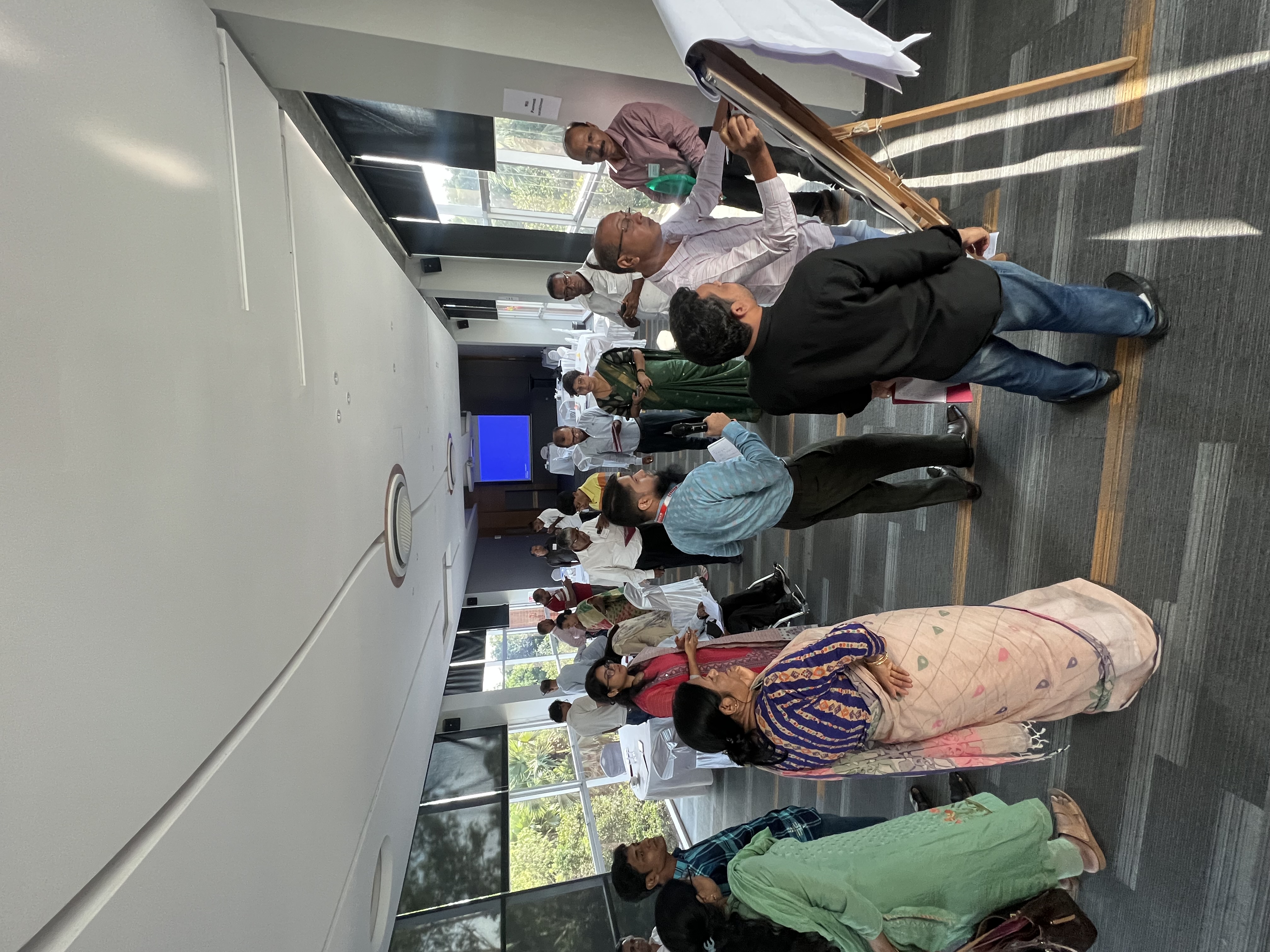
Simultaneous learning streams were designed to support organizations in such areas as Fundraising and Resource Mobilization for emergency response, which focused on the common problem of limited funding for national organizations. I heard firsthand just how difficult it can be for many of these organizations to secure funds for emergency response work:
“As a women-led CSO at the community level, we encounter significant challenges in securing funds for emergency response. In our organization, securing funds for emergency response work presents substantial challenges. Firstly, the unpredictable nature of disasters can hinder our ability to plan and allocate resources in advance. Additionally, emergencies vie for attention alongside our other funding priorities, intensifying the struggle to secure sufficient resources. Donors within our network might also express hesitancy to invest in preparedness, often preferring to direct their support towards immediate needs,” explained Shampa Goswami, Executive Director of Prerona Bangladesh.
Central to Concern’s work is our commitment to people and community-based solutions. Through LCS4R’s objective of strengthening the capacities of local actors we expand our efforts to strengthen localized response and community resilience through a holistic approach, meaning we focus on strengthening systems beyond fundraising.
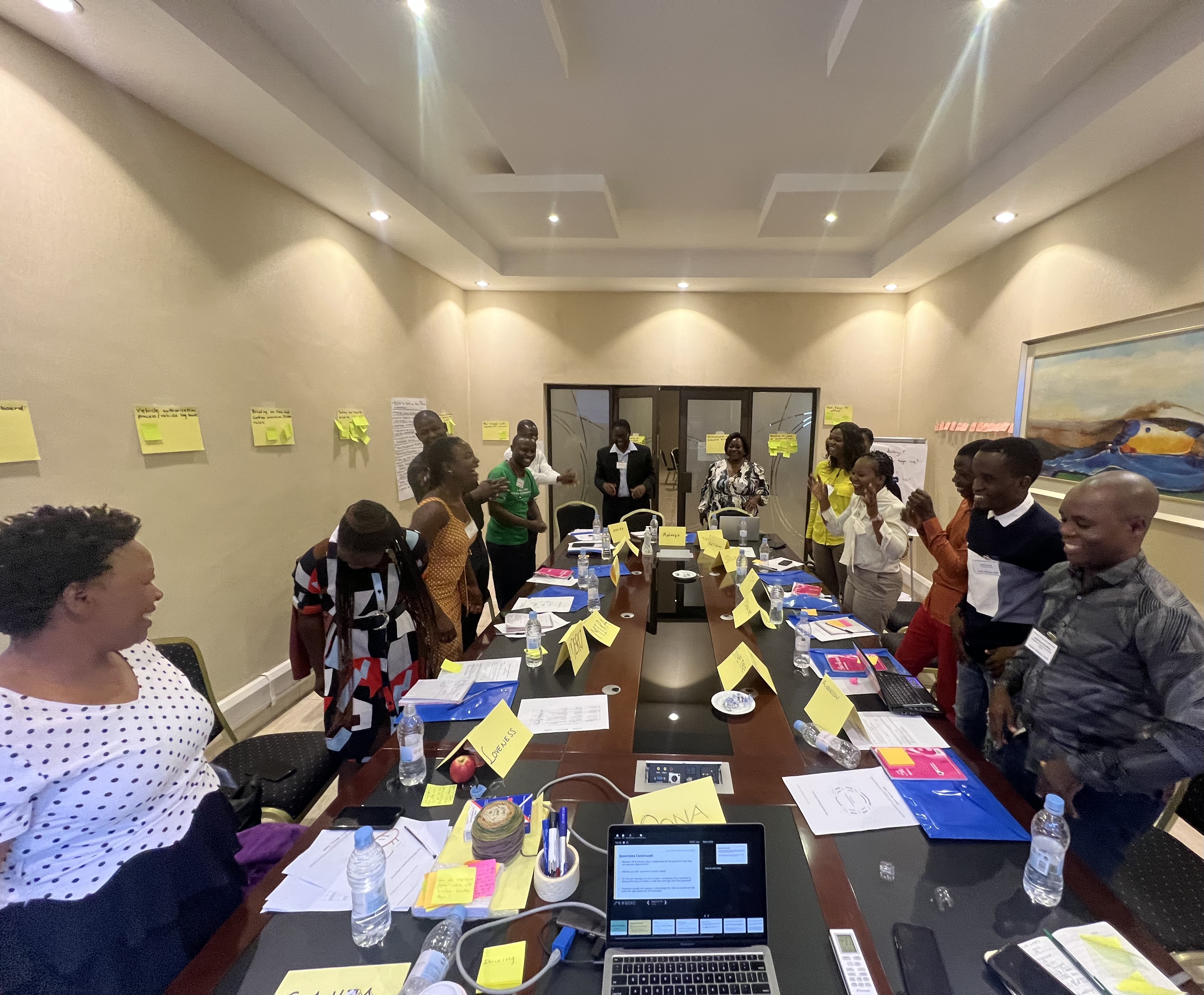
For example, another critical learning stream we focus on building organizations’ capacity in is Human Resource Management in times of crisis. I heard firsthand how powerful of an impact collective mobilization can have at the community level where the participants in this training were able to name every washed-out road and river section when shown photos of Cyclone Freddy’s destruction from when it ripped through southern Malawi in March 2023. These are the people living in those towns, working with their neighbors, and truly hearing and knowing what is needed not only for a response, but for prevention and preparedness. Participants also had an opportunity to share and reflect on Gender Equity and Women’s Leadership in the Humanitarian Sector and the Global and Regional Context, highlighting major trends in the humanitarian sector.
How LCS4R Makes an Impact
The overwhelming feedback I received from the participants in both Malawi and Bangladesh was that small LNGOs and CBOs closest to the communities impacted by emergencies rarely have access to trainings like these due to their size, perceived inexperience, and remote locations.
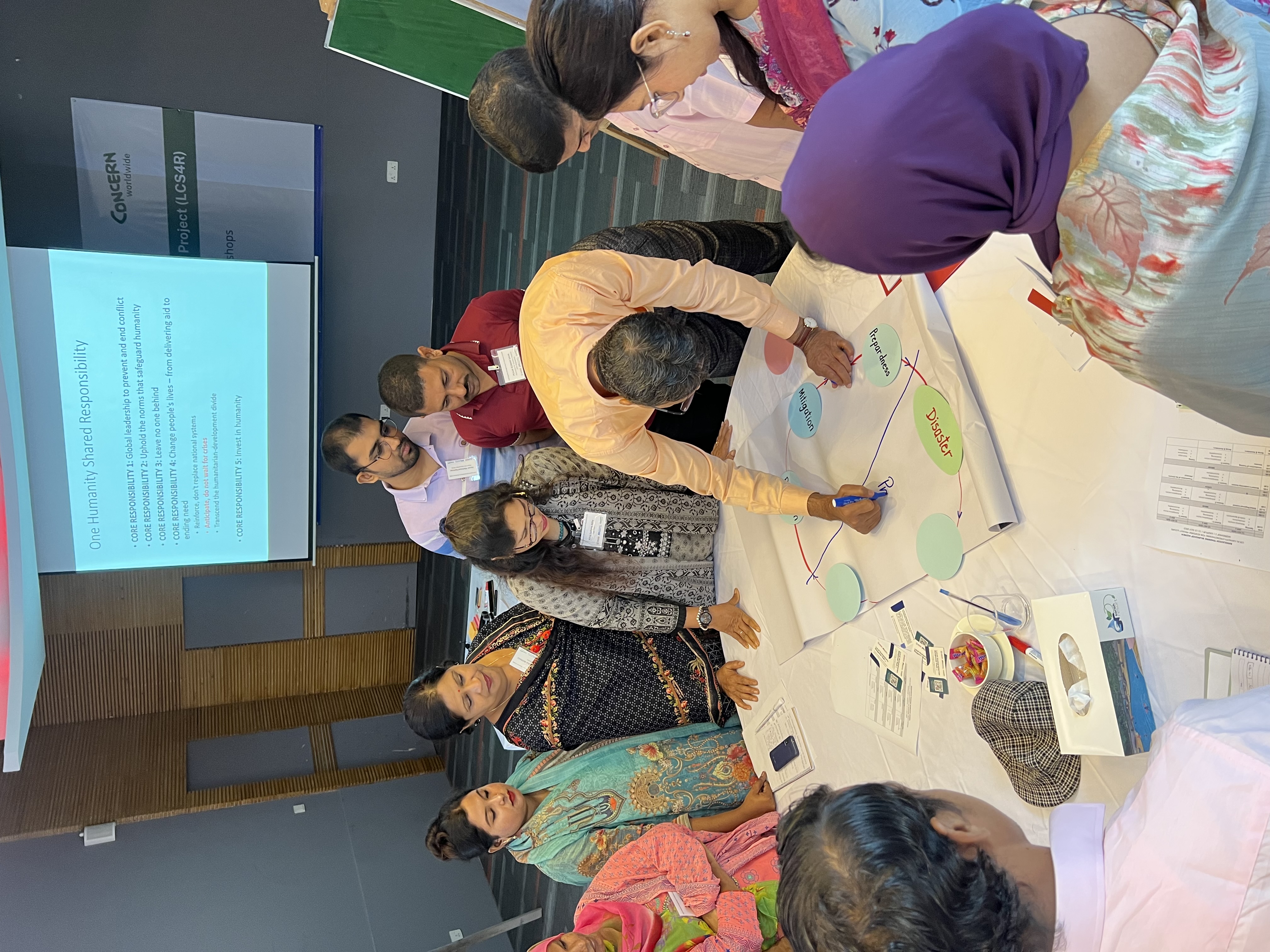
Amigu Potiphar Amigu from Malawi’s Zomba district said, “the LCS4R workshop was very essential to me and my organization (Creative Centre for Community Mobilization - CRECCOM). I was equipped with skills on planning, responding and recovery during disasters which I was lacking. Because of what I gained from the workshop, with colleagues, we are working closely with management to establish a component of disaster management at our organization.”
The knowledge gained and shared, as well as the networking between organizations is still seen when I open my WhatsApp to messages between the participants.
"Undoubtedly, the LCS4R workshops play a crucial role in strengthening disaster preparedness and response. Through these sessions, I've gained a deeper understanding of essential aspects such as inter-agency coordination, early warning systems, and fundraising for disaster readiness. These workshops provide professionals with indispensable skills to tackle emergencies effectively and build resilient communities. Beyond knowledge transfer, the workshops nurture transformational growth. I've learned to share power, elevate my voice, and embrace accountability, fostering courage and resilience. The commitment to transformative change has shifted my perspective from fearing failure to embracing innovation. Moreover, the workshops underscore the significance of creating inclusive workplaces and eliminating power abuse and discrimination. This training equips us with a toolkit for positive change within our organization, promoting self-awareness, power-sharing, and an inclusive atmosphere for remarkable progress,” shared Shampa Goswami, Executive Director of Prerona Bangladesh.
As an organization, Concern recognizes that not only can we do much more to accelerate a more anticipatory approach to predicting and responding to conflict and disasters but that we – the global community – need to do more. In particular, early warning/early action systems must be community-centered, with communities engaged from the planning stages in minimizing the impact of crises and supporting disaster risk reduction efforts.
As a Program Officer for Concern Worldwide US, Oona Mitchell supports the Humanitarian Research and Training Unit’s implementation of capacity building and system strengthening programs, namely the Local Capacity Strengthening for Response (LCS4R), National NGO Program on Humanitarian Leadership (NNPHL), and Building a Better Response (BBR).

